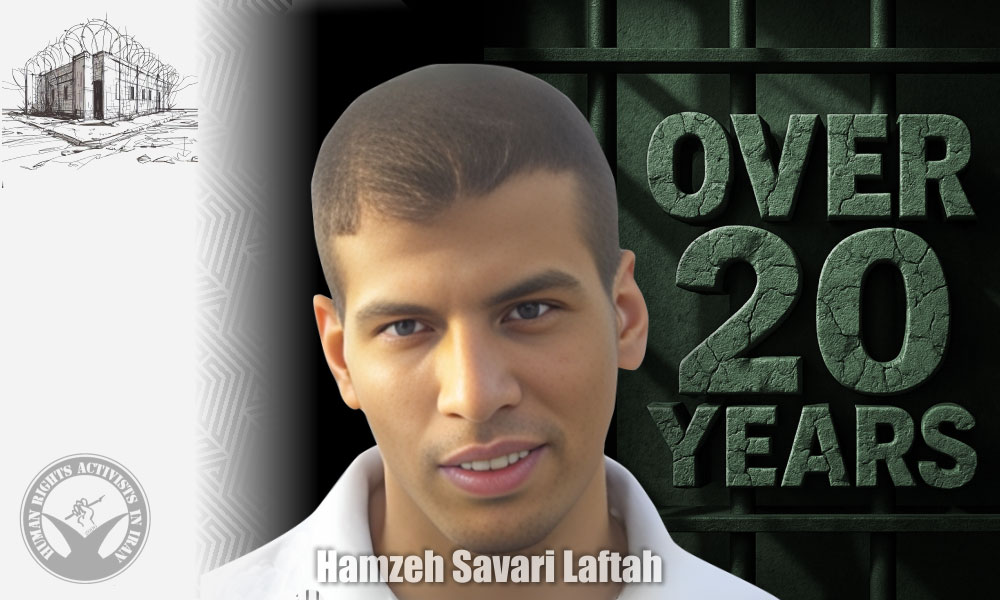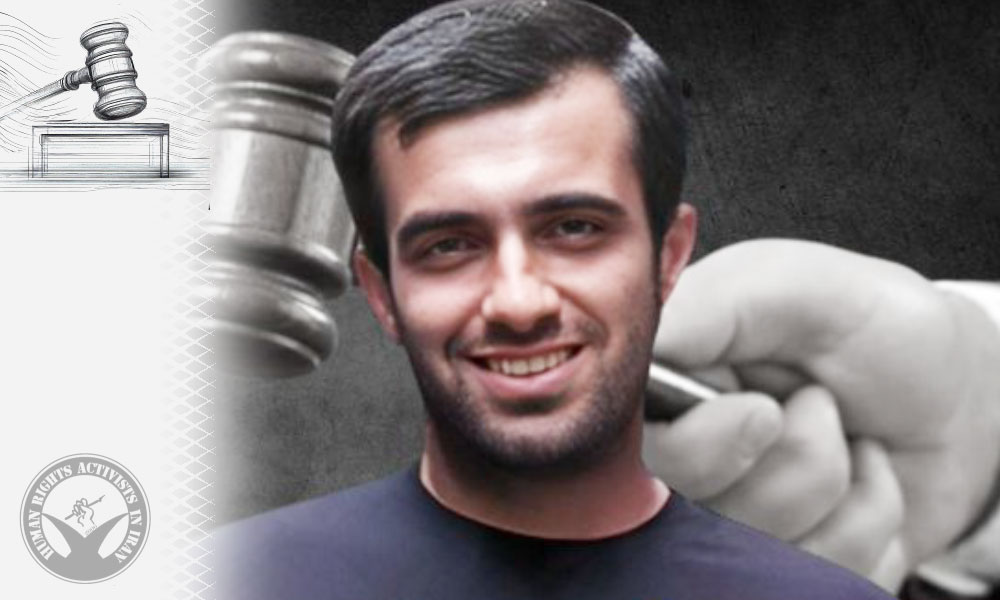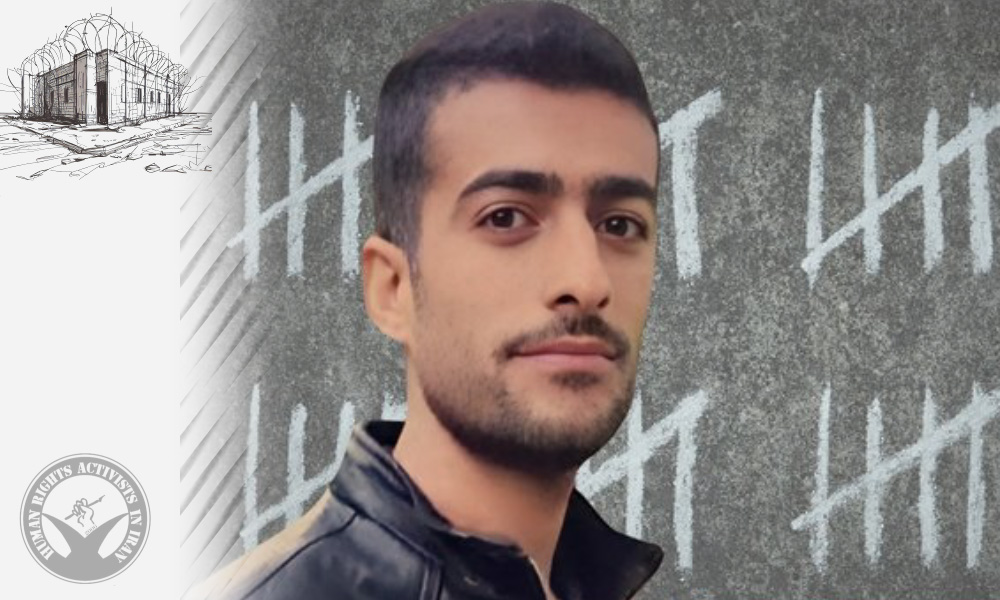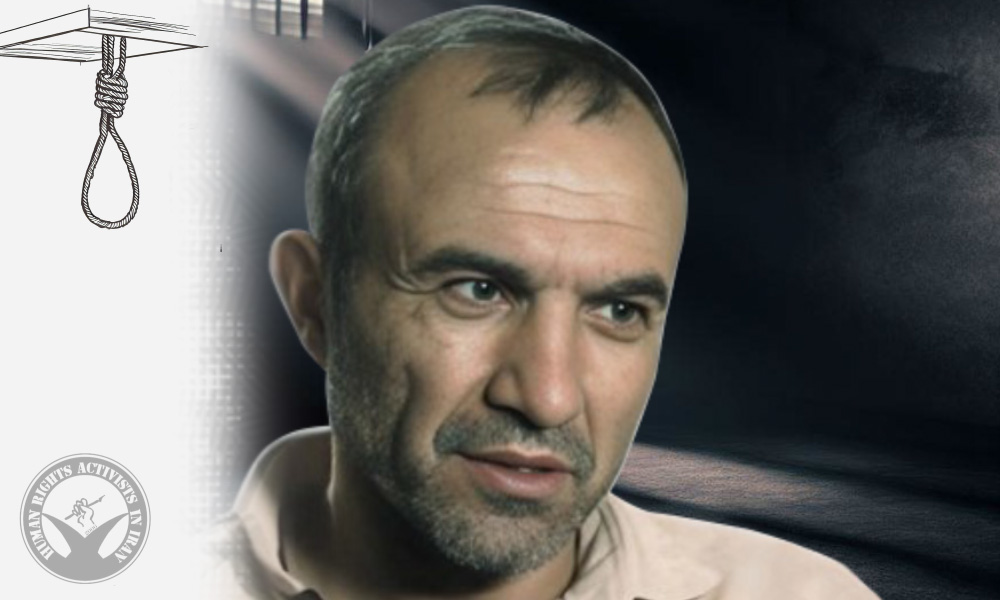HRANA – Many political and religious prisoners in Iran have endured over twenty years behind bars. To prevent their cases from fading from public memory in the flow of daily news, HRANA has launched a series of reports highlighting their situations. Each installment outlines the prisoner’s legal case, detention conditions, access to rights, and immediate needs.
In this installment, HRANA – the news arm of Human Rights Activists in Iran – reviews the current situation of Abdolemam Zaeri after two decades in prison.
Information Summary
• Name: Abdolemam Zaeri
• Year of Arrest: 2005
• Charges Announced: “Acting against national security, moharebeh (enmity against God), and corruption on earth”
• Initial Sentence: Life imprisonment
• Current Sentence: Life imprisonment
• Detention Facilities: Initially held in Karun Prison of Ahvaz; later transferred to Ward 5 of Sheiban Prison in Ahvaz, where he remains.
• Furlough/Access: No furlough reported in recent years; access to family and lawyer reported as limited.
• Current Status: Still serving a life sentence despite legal changes that could allow for review or reduction.
Case History and Judicial Process
Zaeri was arrested by security forces in 2005. Shortly after, Branch 1 of the Ahvaz Revolutionary Court sentenced him to life imprisonment on charges of “acting against national security, moharebeh, and corruption on earth.”
This life sentence placed him among prisoners with indefinite incarceration—effectively subjecting him to decades of confinement while restricting his access to review mechanisms.
Key Points:
• Severe security charges: The label moharebeh is one of the most severe charges in political-security cases in Iran and carries broad judicial and executive consequences.
• Continued imprisonment despite legal reforms: Although legal changes allow for retrials, sentence reductions, or parole in some cases, Zaeri has remained in prison.
Detention Conditions and Transfers
Over the course of his imprisonment, Zaeri has been held in Karun and Sheiban prisons in Ahvaz. He spent several years in Karun Prison before being transferred.
Reports from February 2019 and April 2024 indicate that he was beaten by prison guards and the intelligence protection unit of Sheiban Prison. He remains incarcerated in Sheiban.
Observations on Detention Standards
• Frequent transfers: Moving between wards and prisons can disrupt access to family, lawyers, and medical care.
• Exposure to violence: Documented beatings in 2019 and April 2024 highlight the need for independent monitoring and legal follow-up.
• Denial of medical care: Despite suffering from stomach bleeding, prostate inflammation, infection and bleeding in the left ear, and stomach ulcers, Zaeri has repeatedly been denied transfer to a hospital or access to specialized treatment. Prison authorities have obstructed care on various pretexts.
Denial of medical treatment is a violation of the fundamental right to health and can amount to inhumane treatment, even endangering life. It is often used as a tool of additional pressure and repression against prisoners.
Access to Family, Lawyer, and Furlough
Zaeri has not been granted furlough in recent years. His access to family visits and legal counsel has been restricted. These limitations, beyond their psychological and social toll, also undermine his ability to mount an effective defense or pursue retrial mechanisms.
Potential Legal Avenues (General Recommendations)
1. Retrial: Reviewing new evidence or substantive/procedural flaws in the ruling.
2. Sentence reduction or conversion: If legal conditions apply.
3. Parole or suspension: Based on time served, good conduct, health status, etc.
4. Pursuing violations of rights during detention: Including denial of medical care, exposure to violence, right to visits, and lawyer access.
5. International documentation and advocacy: Using reporting and human rights mechanisms if domestic avenues remain blocked.
Timeline Summary
• 2005: Arrest; charged with “acting against national security, moharebeh, and corruption on earth.”
• Initial ruling: Life imprisonment.
• Following years: Held in Karun Prison, Ahvaz.
• Feb 2019: Reported beating in Sheiban Prison, Ahvaz.
• Apr 2024: Reported beating in Ward 5, Sheiban Prison.
• Recent years: No furlough, denied medical care, restricted family and lawyer access.
• Present status: Still serving life imprisonment despite legal reforms that could allow review.
Summary and Importance of Review
Despite legal changes enabling retrial, sentence reduction, or release for those convicted of moharebeh, Zaeri remains imprisoned.
His case exemplifies the plight of political-security prisoners serving long sentences in Iran. Reviewing such cases is a critical step toward justice and securing their rights.
Zaeri’s file highlights both the deprivation of fundamental rights during incarceration (such as furlough, visitation, and legal access) and the urgent need to utilize all domestic and international mechanisms to seek case review and sentence reduction.
Urgent Needs
• Unrestricted and regular access to lawyer and family.
• Independent medical evaluation, especially regarding reported beatings and chronic conditions.
• Assessment of eligibility for retrial or sentence reduction under updated regulations.
• Enforcement of prison regulations on calls, visits, and furloughs.
• Access to adequate medical services and treatment.
About This Series
This report is part of the “Two Decades Behind Bars” series, which aims to document the cases of long-term prisoners and to highlight the collective responsibility to ensure their visibility and pursue their rights.













